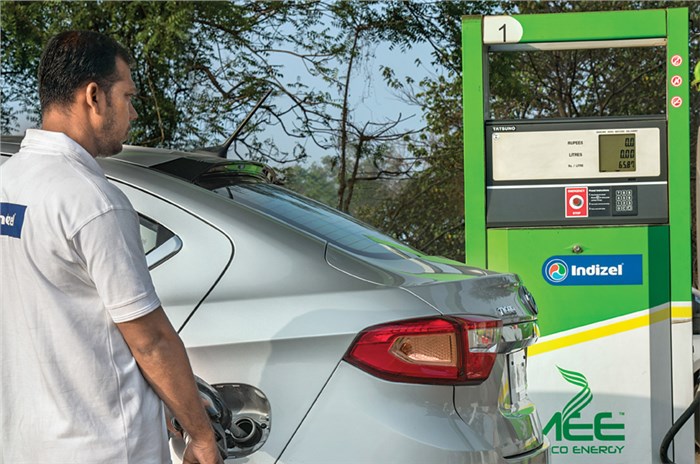Indonesia Launches Road Tests For Biodiesel-Fueled Vehicles Containing 40 Pct Palm Oil
Called Biodiesel 40 (B40), the program tests the feasibility of a cleaner fuel composed of 40 percent Fatty Acid Methyl Ester (FAME) obtained from crude palm oil, and 60 percent fossil fuel diesel, as an alternative source for vehicles.

Indonesia launched Wednesday road tests for biodiesel-fueled vehicles that contain 40 percent palm oil, according to the country’s Energy and Mineral Resources Ministry (ESDM).
Called Biodiesel 40 (B40), the program tests the feasibility of a cleaner fuel composed of 40 percent Fatty Acid Methyl Ester (FAME) obtained from crude palm oil, and 60 percent fossil fuel diesel, as an alternative source for vehicles.
“We hope to get the results, of whether the B40 fuel is viable for public use or not, by the end of this year. The results will be our technical recommendations in formulating the B40 implementation policies,” ESDM Minister Arifin Tasrif told reporters on Wednesday after the launch in Jakarta.
Indonesia, the world’s largest palm oil producer, currently implements its B30 policy — of 30 percent palm oil-based biodiesel. It requires all diesel sold in the country to contain 30 percent palm oil.
ALSO READ: FUEL HOARDING: Natural Resources Committee To Meet Stakeholders In Petroleum Trade To Find Solutions For Runaway Fuel Prices In The Country
Tasrif said the government targeted to implement the B40 program by next year as an attempt to boost domestic consumption of palm oil, cut oil imports and lower carbon dioxide emissions to support green energy.
Besides the B40, another fuel tested by the ministry is B30D10, a mixed fuel containing 60 percent diesel, 30 percent FAME, and 10 percent green diesel made of refined, bleached and deodorized palm oil.
There were a total of 12 vehicles, consisting of commercial cars and commercial vehicles, to be tested for both programs. All of them would go for at least 50,000 km and 40,000 km, respectively.
“We hope that the B40 and B30D10 programs can help maintain stability of our palm oil commodities and support the livelihood of many communities whose life depends on palm oil plantations,” Tasrif said.







